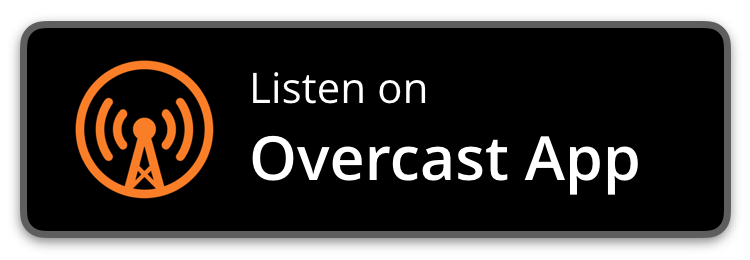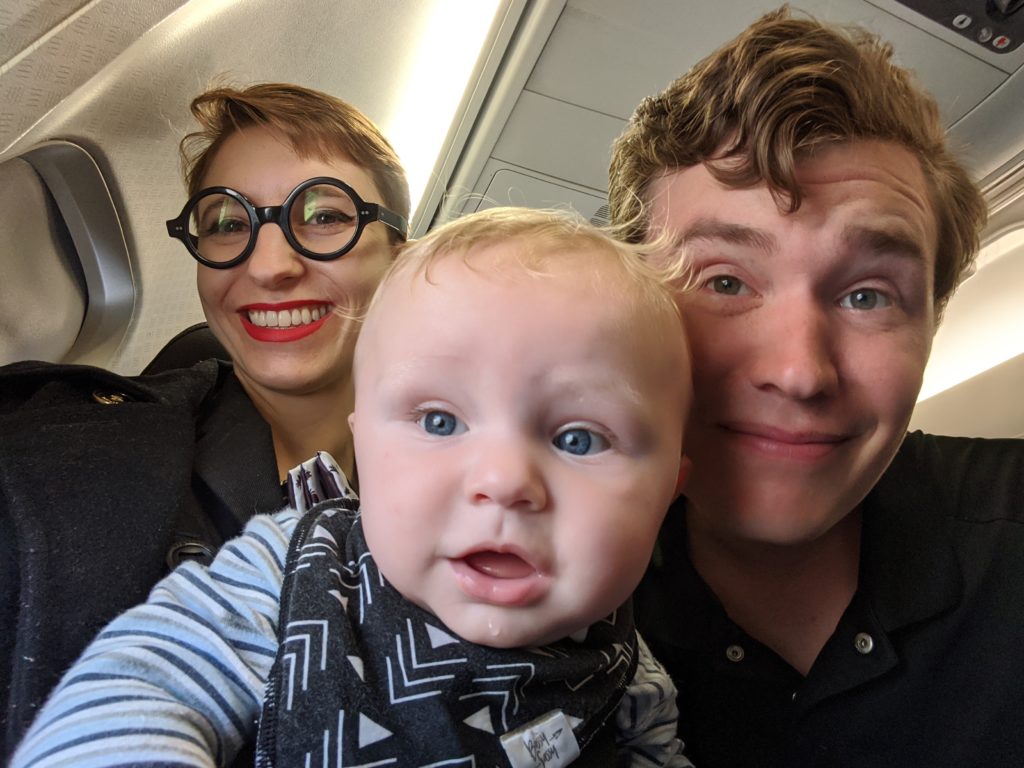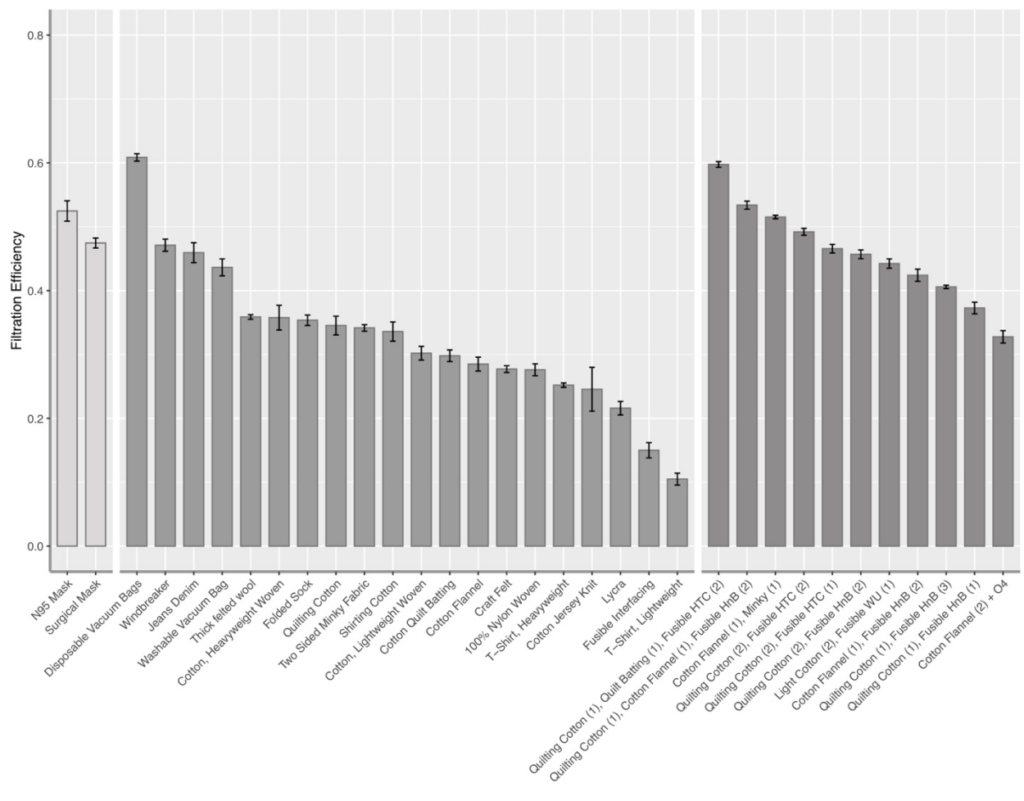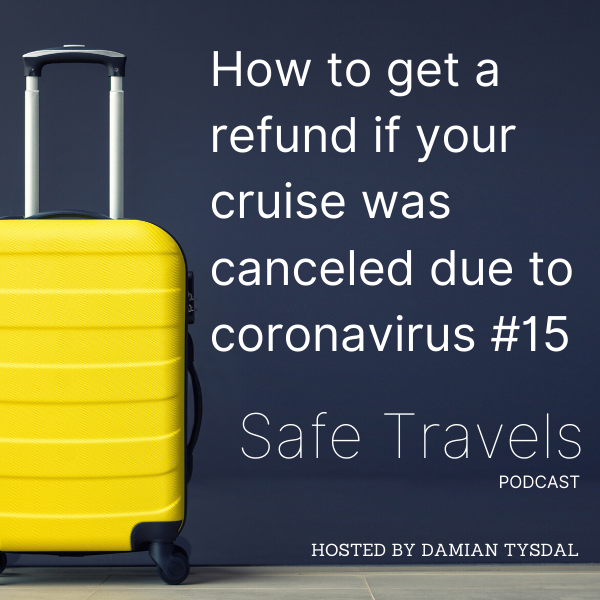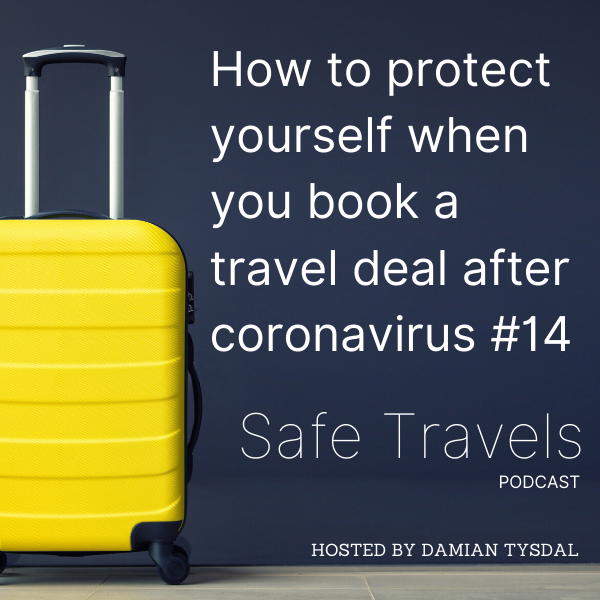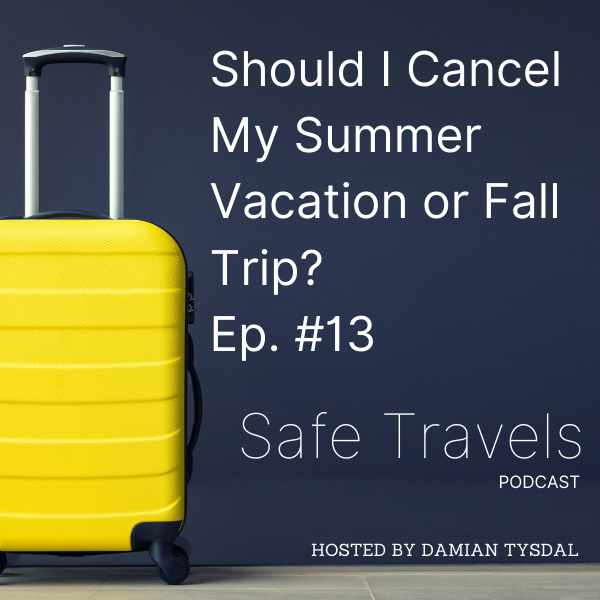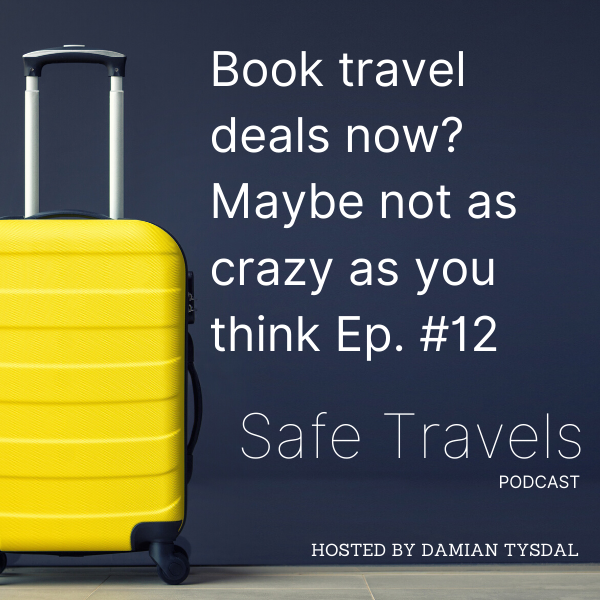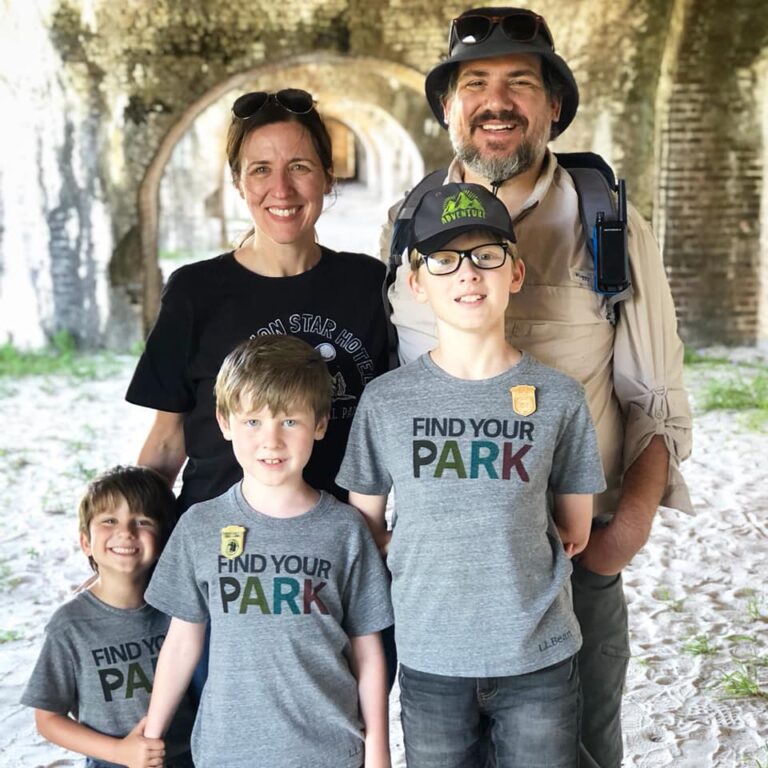
In this episode I speak with Jason Epperson from RVMiles.com…and we’re talking about RV travel as a good alternative during the coronavirus situation.
Many travelers who might usually take flights or cruises are looking for something more low key, with social distancing options, and staying a little closer to home.
In this show Jason talks about:
- “Roadschooling” strategies for RVing with kids full time
- Why the National Parks might be very busy this year
- How the “2-2-2” rule helps keep you sane on the road
- Resources for planning
- Common RVer mistakes and how to avoid them
- Why RVing in cities is not impossible
Selected Links from the Episode
- RVMiles.com
- Our Wandering Family
- Campendium.com
- Roadtrippers
- Passport America
- TSD Logistics (diesel savings)
- National Park service passes
- Motor Carrier’s Road Atlas
- Outdoorsy.com
- RV Inspectors
Show Notes & Timestamps
- “Roadschooling” strategies for RVing with kids full time 00:00:44
- How the RV community is handling coronavirus lockdowns 00:03:17
- Is RV travel a good alternative for corona-related concerns? 00:06:29
- Protective measures campgrounds are taking 00:08:12
- How to learn about restrictions in various areas 00:11:03
- Why the National Parks might be very busy this year 00:13:47
- Extra safety precautions the RVers might take 00:14:21
- Top general tips for people new to RV travel 00:17:13
- How the “2-2-2” rule helps keep you sane 00:18:51
- Resources for planning 00:20:24
- Common RVer mistakes and how to avoid them 00:23:57
- The vital offline map that everyone needs 00:25:43
- Myths about RV travel debunked 00:26:19
- RVing in cities is not impossible 00:28:34
- Final advice 00:30:04
- The AIRBnb of the RV world 00:32:50
- Are any brands of RV better than others? 00:33:40
- Why getting an inspection is vital for buyers 00:34:45
- The next “bucket list” destination 00:35:58
Listen
Transcript
Damian: Jason, thank you for joining us today.
Jason: Happy to be here.
Damian: Could you just help the audience understand a little bit about who you are, what you do, and what you’re up to?
Jason: So, I am a full time RVer with my wife and my three kids, and we have been traveling the country for almost four years now. And, we do podcasts, and blogs and YouTube videos about traveling. We have the RVmiles podcast, which talks about our travels and the RV industry.
And we have the See America podcast, which talks about American destinations. And then we have the America’s National Parks podcast, which talks about all the different national parks in the U S, and we’ve been having a real fun time doing it.
Damian: and you mentioned traveling with kids, so you are homeschooling on the road?
Jason: Yeah, we call it road schooling, we’ve taken our life on the road and made it an educational opportunity. So a lot of our travel is influenced by homeschooling, by what we want to teach the kids at that time. So, you know, they do basics everyday math and, and reading and, writing and spelling and all that sort of stuff.
But, when we want to deal with like American history, you know, we can go to all these amazing places in this country and learn about them. We want to deal with geology. We can go into a national park and, and look at rock formations, go to a chat with a park ranger, all that sort of stuff. We did, we spent about six weeks in New Mexico our first year on the road and visited all the Native American sites and basically spent all that time being immersed in native American history, so the kids got to experience that stuff first hand instead of in a book, which was just wonderful.
Damian: I know a lot of people have had the thought of doing something like this full time, and you mentioned it a little bit, but when you made the decision, was there some anxiety around that? Was it a scary decision to make and if so, how did you deal with that?
Jason: Oh, I don’t know. We were so excited at first, part of the biggest challenge for us was the fact that I was still sort of wrapping up some work in Chicago and we had to stay in and around in Chicago and we couldn’t get on the road right away. So we were staying in a campground and I was driving two hours into Chicago every day.
So there was so much happening. There wasn’t really a whole lot of anxiety over it for me. I think maybe the kids had some anxiety. There was a lot of anxiety over selling a bunch of our stuff. And we had to downsize drastically. We had to get rid of a lot of stuff.
Other than that though, you know, our last day in Chicago, you know, we never, people talk about the violence of Chicago all the time. We never experienced anything remotely violent or dangerous or any crime whatsoever. But the last day when we’re moving into our bus, right outside of our apartment, a guy comes up to us he actually came up to our kids first, which kind of concerned me, and he was telling our kids to go inside and he, then he came up to us and he says, you guys should go inside right now…â€I was just robbed at gunpointâ€.
And that was just kind of a sign to us that, you know, it was just kind of time to leave this neighborhood. And just get out and do something else. And, gosh, we’ve been, there have been challenges, certainly like any life. But we’ve loved it,
Damian: That’s amazing timing on that story.
Jason: right?
Damian: Now you’ve been…for the audience, it’s May 13th right now…so we’ve been dealing with coronavirus for several months now. A lot of the country’s locked down. So you’ve been out on the road or in RV lifestyle during all of this. How’s that community handling coronavirus?
Jason: it’s been a real challenge for some, and some have been luckier than others. Basically, what happened…about eight weeks ago now, is that States began to close Campgrounds at least that States and the federal government ran, all the public campgrounds started to close and private campgrounds were the only thing open because this States I’ve been trying to discourage travel.
The idea being if the campgrounds are open, people will want to travel to our state and bring this virus around the country. And there are over a million full time RVers out on the road and not only full time RV owners, there are many more than 1 million people that do what we call “snowbirding where they go from the colder climates in the North to The South in the winter, in an RV.
Even if they have a home or they’re just, you know, out traveling and getting caught in the middle of this. So we were in a campground, that we were scheduled to be at for a week. And, we sort of made the decision pretty quick that we weren’t going to keep moving.
We’re in Arizona where there’s probably a lower chance of a lot of cases, there’s very few people in this County, and we just booked a monthly right at this campground, and we’ve been here for the last two months now and haven’t moved.
And a lot of people have experienced that, but a lot of people were somewhere where they couldn’t book a monthly rate or they needed to get somewhere and some travel restrictions began to be put in place, and that made it difficult for people. There’s 14 day quarantines when you arrive in some States that are required, and there are some counties, it’s all been County by County…there have been some counties that have closed all campgrounds, including private parks entirely.
The state of New Mexico has told all campgrounds that they can only operate at 25% capacity. So some people had to leave for all sorts of incidents like that, and lots of campgrounds closed all their amenities, including bathrooms and laundry. and that can be a challenge for people.
I don’t know that it’s much more of a challenge then people who are having to shelter in place in their own home. But there, there are a few little wrenches that make it a little bit more difficult for an RV. But there, there’s some freedom as well. You know, if you were in a hot spot and, and wanted to get away, or if you own an RV, there are a lot of people that are medical professionals that own an RV, That are staying in their RV so they don’t have to come home to there
Damian: Hmm.
Jason: You know, they might even be staying in their driveway. Right? But they don’t have to bring the virus in their house. So, there are positives and negatives to this time that we’re in right now.
But there have been a lot of challenges for us. Full-timers, at least.
Damian: That leads us to the main topic that we wanted to talk about a little bit…so many travelers are looking at options that they can fill in for a lot of the travels that they aren’t able to take. Whether it’s airline flights, I’ve certainly read a lot about people leaning towards RV or at least thinking about it.
And we wanted to get your opinion about whether it is a good alternative, form of travel during covid-19?
Jason: Yeah. There is huge interest in RVing right now. It was already on the rise before this happened and the sales at dealerships have not slowed down at all, and the campgrounds that have reopened are reporting that they’re getting lots and lots of bookings. People are wanting to travel. They’re realizing that they’re not going to be traveling internationally anytime soon. They may not want to get on an airplane. They don’t want to deal with being close to people in a pressurized cabin, all breathing the same air. They don’t want to get on a cruise ship and they can’t get on a cruise ship anytime soon.
They might not even want to go to a hotel room, so the idea of bringing your accommodations with you is really appealing. You have your own bathroom, your own kitchen, and you can clean it yourself and all that, and you’re self contained. So a lot of people are looking at this as a great possibility.
Four, getting out there and traveling. After this is over, or even now, and people are getting the itch right now because they’ve been cooped up. They want to get out, and they want to go see some things. So, a lot of people are not working and if they have the money and can afford to, they’re thinking, well, I’m going to travel, until my place a business opens back up.
So, there’s a ton of interest right now and it is, it is a great way. So travel, there are changes happening based on the Coronavirus. And I think in every aspect of life where we’re looking at a new normal. And, when you go to a campground now, as opposed to a couple months ago, you’re going to see some different things.
I just participated in a big summit… back to camping summit, which was thousands of campgrounds all getting together to talk about reopening and all the challenges they’re facing. So they’re putting in lots of implementations, like, contact-less check in…o they’re checking people in over the phone.
Closing down their store. Maybe their stores open, but they’ll deliver stuff to you. So if you need firewood or ice and things like that, they might not have it available for you to walk up and get at any time, but you can order it. Our laundry room here has opened up, but they’ve closed every third machine to keep people distance from each other there. Give it specific hours. They have rules for how many people can be in the laundry room at a time.
There’s lots of stuff like that happening at campgrounds themselves. In general, the experience at a campground is about the same and especially as more and more reopened. But the biggest changes people are going to experience if they want to travel right now are going to be at the places you go visit.
So if you’re going to National Parks or you’re going to different attractions around the country. Those all have different ways that they’re reopening. National Parks are slowly reopening and figuring out ways to do it without visitors centers, without shuttle buses and maybe with limits for people getting in.
And, obviously events all around the country are still canceled and probably won’t be returning anytime soon. So going to restaurants can be a challenge. All that sort of stuff that you’re hearing about, across the country is happening, or people are trying to figure out how to approach reopening.
Do restaurants cut their tables in half, you know, half as many tables in the restaurant? Do movie theaters reopen? Do they remove seats and stuff like that? There’s all kinds of stuff that the whole country is figuring out and what’s happening in your local town with that is probably the same thing.
It’s happening elsewhere in the country, but it could be worse. And like I said before, it’s really different County to County. There are a lot of counties, particularly tourist counties, that have challenges that we might not understand.
So for instance, Moab, Utah is a big tourist destination. It’s a resort community town. They call it a gateway community for national parks where people go and they use the hotels and they use the campgrounds and visit the surrounding National Parks around Moab.
Moab has a hospital that has 17 beds. So, that County had shut down, all travel, all visitors had to leave. And they still have some pretty strict restrictions in place and nothing is open there. So you’ll see stuff like that happening in different places that are very, very popular. But our small communities with small medical facilities, the Florida keys being another example.
Damian: So Jason, you mentioned restrictions County by County. Is there some sort of resource that you’re referencing to figure out what’s going on?
Jason: No, it’s actually really hard to figure out specifically what’s going on, in different places other than looking at there are some websites that will tell you what’s going on state by state, but you still need to check.
What’s going on in different areas. So what we recommend is that you look at campgrounds and accommodations and places you want to visit and give them a call and ask them what’s going on. We look at Campendium.com. It’s a big campground review website as the best place to find open campgrounds, they have done a really good job of making sure to track who’s open and who’s closed. And they have a filter in place so you can filter out the ones that are closed and all that sort of stuff for right now.
And you know, most of those will be opening in the near future, that’s a good place to get some idea of what’s going on, but it’s best to call and find out what’s going on in the local community that you’re looking at going to. We also use lots of Facebook groups, there are lots of local travel groups, so if you’re looking to go to Glacier National Park, if you go to find out Glacier National Park Facebook group. That’s a good place to get some idea of what’s happening on the ground there because you want to learn about, not only, what the restrictions are in that County and that community, okay, but how is that national park, if you want to visit a national park, how’s that national park managing the coronavirus how are they dealing with people entering and exiting parking areas? Are the trailheads open or the picnic areas open, all that sort of stuff. You can generally find out from, from people that I have done it already.
Damian: Those sound like really good resources. we’ll certainly link to those. And a follow up question on, just contacting other people and trying to maintain some avoidance, you mentioned some great procedures that campgrounds have in place and various parks. What level of contact is really required as you’re moving around the country?
Jason: I think people often get the idea that they’re not going to have to contact people to travel in an RV. Now, certainly if you want to be in your local community and go camp near where you live. That is probably a really good way to get away from people and do some social distancing.
But if you’re doing some cross country travel, you’re definitely going to be going to gas stations. You’re going to be going to grocery stores and you’re going to be doing a lot of the same stuff you were doing at home because if you’re traveling. For a longer period than you can, take the stuff you need with you.
If you’re traveling more than a week or so, you’re just going to have to be doing that stuff and if you want to go visit sites, those sites are going to have different ways that you’re going to have to interact with people or probably just the very fact that there are going to be other people there.
I think we had this idea that this would be a good year to get to some of the busier national parks like Yellowstone, and Yosemite because maybe less people would be traveling. And we’re finding just really over the course of the last week or two from what we’re hearing is that this is going to be a very, very busy American road trip, travel season.
There are going to be a lot of people at these places. It’s not some time to have a national park all to yourself, as I think some people had hoped everybody has the same thought that you had, and they’re all getting out there.
Damian: And for those that might want to give it a try. Do you have other safety considerations or precautions you might recommend that they take
Jason: Well, you know, you can do some of the same stuff that you might consider doing at a gas station at home. If you want to wear it gloves or use hand sanitizer and wash your hands after using the pump and, make sure you’re not doing things like, wearing gloves and then holding your phone while you’re doing it, and then taking the gloves off.
And then when you’re out at the campground, you can wipe down the water that you hook up to and the electrical box with a sanitizing wipe before you use them.
A lot of people do that anyway. They’ll take a little bit, a bowl with some water and bleach in it and, they’ll dip it up and the water faucet that you hooked up to at the campground, to make sure that it’s sanitary because a lot of people, a lot of people use the same hose to hook up to the fresh water at the campground that they might use to clean out their sewer hose. So you see people doing silly things like that. So it’s a good idea to practice on sanitary things like that when you’re traveling anyway. So…
Damian: Yeah…I would hope that last one would be a common sense thing, the hose usage, dividing those a little bit.
Jason: Yeah. And then going to, when you go to the dump station to dump your waste tanks and stuff, the same thing, but wipe everything down. Make sure to wash our hands after. If your RV has an outdoor shower, a lot of them have a little outdoor shower. but that’s a good place to wash your hands. You bring some soap out there, wash your hands after doing the dirty business of dumping your tanks so you don’t have to bring anything into the RV to wash your hands. We do a lot of stuff like that, stuff that we would otherwise do.
You’re going to want to learn about the different ways grocery stores are acting or are dealing with this in different areas that you’ve traveled to. And when you go to the grocery store, that’s going to be your main point of contact, with people. But you can often bring your RV right up to the grocery store and load stuff in right there. We still do the grocery store pickup where you go, you can go to the Walmart app and order from Walmart and yeah, they have it ready for you.
They just load it up for you so you can do those sorts of things and not have to go into the store even while you’re traveling. Those are all good things to do. And then I just try to take this time, I think to go to some of the less famous areas, the less populated areas, the less popular places.
There are so many things to see in this country. So while we’re in a time where we’re trying to stay away from people. Go to some of those places. Don’t, don’t feel like you have to go to the 62 major national parks. You can go to any of the national monument sites, you can go to national forests and, and that sort of stuff.
Damian: I think that’s all great advice for those thinking about tackling something like this for an alternative this summer. Right now, I’d love to shift away from coronavirus a little bit and some general travel advice because you have extensive experience in this, certainly after four years on the road, family travel, you’re doing road schooling, so you certainly have the experience.
I’d love to provide some general RV tips and RV travel tips for the listeners. The show is about worry-free travel, all those little things that get people a little bit anxious. What are some of your essential tips for RV years and maybe specifically for those considering full time.
Jason: Well, my biggest tips for traveling in an RV, are to be flexible and to take it slow, and it’s okay if you want to plan every minute of your trip, but have backup plans, be flexible with the fact that you might not like a campground.
Something might not be open, you know, if you want to, we call it boondocking…when you stay on public land outside of a campground, when you’re just sort of parked and running off your battery power, you might feel like that area is sketchy or it’s not easy to get your rig into. Be flexible about where you’re going to camp and then just give yourself the time to go to the places that you want to go.
We talked to so many people that have two weeks to travel. You know, they’re taking their two weeks off for the year from their company and they’re trying to book a trip to eight national parks, or you know, they’re going through seven different States and they end up spending all their time driving.
And it does take you quite a, you look at what you look at, the amount it takes you to drive on Google maps, like the suggested time of travel on Google maps, you want to add several hours to that per day for RV travel because you’re just by the very nature of it are going slower. You’re visiting the gas station more often, and it just takes more time and you want to arrive at the campground before it’s dark because nobody likes to pull into a campsite in the night and try to figure all that out.
So we use this thing called the two-two-two rule, which a lot of our viewers use, and some of them use the three, three, three rule.
And so if it’s the three, three, three rule, what it means is you, you only travel every third day and you only travel up to 300 miles and you try to get to the campground by 3:00 PM.
And, you don’t have to follow a silly rule like that, but make a rule for yourself. How far do I want to travel in a day? How many hours, how many miles? What time do I want to get to my campground by and leave myself some flexibility in case it takes longer, so you can make sure to get there in time to set up and enjoy the campsite and experience the place.
And then try to stay somewhere for a few days, even if it’s just a stopover on the way to somewhere, find a good stopover that has a few things to do in that community and do them instead of trying to travel 2000 miles, booking one night at a time.
It really gets difficult and it really grates on you after awhile, so that’s sort of the, the top thing I recommend to people, especially if you have kids, you know, kids are there going to want to stop to go to the bathroom or they’re going, they’re going to have a harder time dealing with the amount of travel that you’re doing.
So take it easy and, and don’t try to do everything at once, you’d be much better off spending an entire week…in one national park…than trying to go to five of them over the course of that week, and exploring the place for real. So, that’s sort of my, my top thing.
Some resources for planning your travels…we really like to use roadtrippers.com which is a great way to find destinations along a route. So you can put in your starting point. And you can put in your end point and then you can search like within 30 miles of your route to find different attractions along the way…different sites to visit along the way. Different campgrounds or hotels to stay at.
So we really like it using Roadtrippers for that. But you also can, but in your vehicles, gas mileage, and it can tell you how much your fuel costs are going to be over the course of your road trip.
And that site I talked about earlier, campendium.com, is a great place to actually find campgrounds along your route. There’s a cool ndiscount club called Passport America, which is great for any campers that are looking for a discount overnight. So, generally going to be up to one to two nights that you can get up to a 50% discount at different campgrounds.
And basically you just go on their website and find which campgrounds in the area you’re traveling to. Have it available and you call them and, and book with your passport America card. And it only costs like 40 bucks a year to be a passport America member, and, that’s a great help, for those real short stops when you’re traveling.
And then for fuel savings, if you have a diesel, a RV, or a diesel truck, there is a diesel fuel savings card called TSD Logistics. And this is a crazy discount that is absolutely free. You basically, they pay and then they take it out of your checking account and it sounds like a scam, but it’s not.
Lots of RVs use it. It’s T S D logistics and diesel fuel…I’m not kidding…ou can save up to a dollar a gallon, it’s just a massive savings. People are saving a ridiculous amount of money, but you have to use the truck pumps right at a truck stop. You have the big ones in the back, which a lot of, if you have a diesel RV, you’re probably using those anyway.
So yeah, those are just a few different things that can help you out figuring out. Most people that are RVing are looking to see the national parks….getting that annual national parks pass is a great help. It’s $80 a year for anyone and it gets your entire carload into any, it’s not just national parks, it’s national parks, national forest, us fish and wildlife service sites, any federal recreation site. The pass gets you into, and you can get. And, it’s a great savings as opposed to spending $30 a week for our carload at one national park. This is going to get you for the year.
If you’re a senior, you can get that pass for $80 for lifetime. And, it also provides for seniors. Half off of camping, which is a massive savings half off camping at any federal campground there, like 10,000 federal campgrounds out there, and if somebody in your family is disabled, you get basically that same benefit of the senior past absolutely free and it’s any disability at any level.
Those are super convenient and handy to have.
Damian: That’s great. That’s a lot of great tips and great resources that I’ll definitely link to in the show notes, so that’s fantastic. With the new RV years that you see out on the road, I’m sure you see a lot of mistakes. You see a lot of the same things over and over again. How can you help the listener avoid some of those mistakes?
Jason: Well, one of those big mistakes again, is arriving at the campground too late and trying to go too far, so definitely try to avoid that and trying to do too much of course.
Some of the little mistakes that people make, often involve not really planning their route very well and ended up taking their RV places where they might not want to be taking it, and campgrounds can be very rural and getting to those rural destinations, highway miles are pretty easy, but, getting back to the backwoods, to the rural destinations can be a challenge.
So one of our best tips is to talk to the campground, go to the campgrounds website. Usually its campgrounds website will list the directions to the campground, and they’ll tell you, “Don’t take this route, take this route, don’t take that road, go around this wayâ€. Especially when you get into like national parks there, there may be some roads that you can’t take an RV on and some roads that you can, so you want to know it’s sort of your path because you could be delayed by hours, by going the wrong way.
Damian: So a GPS might tell you one route, but then you should check with the campground if they have a specific way that’s better?
Jason: Yeah. Do not follow the GPS blindly. Absolutely, we actually, we use several resources. We use Google Earth to sort of look at the route. You know, if we’re k curious about a road, we can actually go in and look at that road using the street view, but we’ll also use a paper map.
We have the, it’s called the Motor Carriers Atlas, and basically it’s, the map that truckers use. It shows you all the truck routes in the country, so you can look to see if this is a route that you’re planning is recommended for semi-trucks, then you’re probably pretty good at it.
Now, if you’re driving a real small RV, maybe this might not matter that much to you, but the bigger rigs, it’s important to be careful about mountain passes that don’t recommend you be longer than a certain amount, and, and be careful about some of those washboard back roads.
Damian: And what are some of the common myths and misconceptions about our being that you can help dispel?
Jason: So there are lots of different types of RV, right, and people do this in lots of different ways. So one of the biggest misconceptions that RVers are very rich, and because they must be able to be rich, to be able to afford this big RV and be able to go to all these campgrounds.
And the weird thing about, especially us full timers, people either think we’re, we’re very rich or we’re very poor. Nobody thinks that we’re in the middle as most of us are. And, but my point there is that there are lots of different ways to travel.
So if you want to be somebody, that goes to all of the big resorts and you want to have the pools and the waterslides and the cabanas and all that stuff. You’re going to pay for that.
So you know the idea that our being is cheaper than traditional airplane or road trip travel to hotels… it can be a myth because people think they are going to be saving a lot of money because they’re camping.
It cannot be a myth, if you are willing to camp affordably, and that might mean that you’re not plugged in a campground that you’re going to be at, that might mean that you’re using the water in your water tank. And, You’re going to a state park that doesn’t have the cleanest bath houses and that sort of stuff.
And, if you’re okay with that, then you can save lots and lots of money doing this. Of course, the cost of your RV is going to factor into that as well, that comes with RV ownership or RV rental, there is a massive scale of RVs available for rent, and some of them are going to be way more affordable then and others.
And it’s going to depend on where you go and, that just like, you know, renting a car. So, costs one of the big myths, but you can save money if you do it right. Just like any sort of travel.
The good news is that, you’re not traveling, you’re not going to, a super cheap hotel room and dealing with, somebody else’s cleaning and all that sort of stuff. deal with your own at that point.
Another myth is that this life has to be completely laid back and rural and going to the boonies and going out into the woods into the middle of nowhere and not going into cities.
We RV to cities all the time. There are some cities that are better set up for our viewers than others. And you’re generally gonna pay more at a campground near a city. But they’re generally great places to camp near cities. For instance, I’ll give you New Orleans. You can go to New Orleans or three state parks surrounding New Orleans that are $25 a night.
I mean, they’re in New Orleans proper. There’s a great federal campground that’s in a Nashville proper that we stayed at that was $20 a night called Seven Points, so you can actually RV two cities very easily.
Now that’s a challenge if you’re just in a motorhome, and you don’t have a separate car with you, right. And it’s a big motorhome, you can, if you want to, you park on a campground like this, then it can be a challenge to explore. But a lot of people rent a car when they get to a city, or they bring a car with them. You can tow a car behind your RV, or if you’re. If you’re a truck towing a trailer, then you have a truck…that’s what we do, you’ve got a truck that you can, a hop around a city and visit everything in.
So, yeah, we’ve RVed around Chicago, New Orleans, Mobile, Nashville, Atlanta, lots of different cities that you can go to. You can even RV to New York city if you want. There is a, there’s a campground, right across the river in New Jersey that is looking straight at the New York skyline, so it is possible to, to see all the different sites in America, if you’re flexible, in an RV.
Damian: Is there a final, sort of big idea piece of advice that you can give to people that are either going to try RV for the first time, or maybe they’re just getting into it? Do you have some sort of, big piece of advice you can finish with?
Jason: Yeah. To really do your research. I mean this, if you’re going to buy an RV, that is a massive purchase. Even if you’re buying an older, smaller one, you’re going to be spending a lot of money on an RV. So really take your time to do the research and learn about the different brands. Learn about the issues that people have had with them.
Buying an RV it’s not like buying an automobile. It’s much more like buying a house. You’re going to have the same problems. A house has not the same problems your new Honda civic has, you know, your Honda civic, if you have an issue with it, you take it to a dealer and it’s fixed within a day and it’s under warranty and it’s pretty easy.
And you very rarely have issues with it within those first several years of ownership. Almost every new RV has some issues with it. Just like every new house, it has some things that need to be fixed and, you know, weren’t hooked up properly, weren’t run properly.
That happens in RV. And if you look at it like that, knowing that there are going to be some challenges and knowing that if you’re somebody that is willing to do a little bit of the work to deal with some of that stuff because it can be really challenging to get your RV in for service. It can take several weeks at a dealership. There are mobile technicians out there, but that is the biggest problem that RVers have on the road is dealing with maintenance and service.
So, I just want to caution anybody that’s looking at it and to get into this lifestyle if you’re somebody that can’t manage minor maintenance and if you’re worried that your rig is going to be perfect when you buy it.
Don’t spend thousands and thousands of dollars, and if you don’t know, dip your toes in or into an RV, and that’s a good way to find the different types of RVs that might be right for you anyway.
If you rent one, you can sort of learn about, one and see if it’s the type that’s right for you, and it might not be, you might want bigger, you might want smaller, there are a lot, lots of different options out there for RV.
So yeah, it can be really confusing to people that, you know, might think that they want one thing, but actually end up wanting another, and a lot of people end up selling their rig for something different within the first two years and they take a huge hit and depreciation. So try to avoid that by renting, especially if you’re only going to be traveling short term there’s no reason to go buy an RV if you’re going to take two weeks of travel right now.
You can do that and rent an RV and figure it out. And if you’re worried about driving one, you can actually rent an RV, in the local area of the campground that you’re going to, that owner will put it in the campground for you and you just stay on it.
So you can go and there’s places just like, there’s Airbnb for booking people’s apartments, you can go on a website called outdoorsy.com, and you can, there’s another one called RVshare.com, and you can rent people’s RVs there are personal RVs, but they also have they have insurance and everything that like AIRbnb has.
So it’s, it’s a great option for everybody. And a lot of those people set it up right in the campground for you that might teach you how to use everything on it. I think that’s probably a better thing than going out and buying. Normally, I recommend that people go to RV shows to learn about RVs before buying them. You know, tour all the rigs at an RV show that RV shows aren’t going to be coming back for a while. So I don’t know that I have a solution for that yet. But you can also walk around the dealer lots and all that sort of stuff.
Damian: Now on the topic of reliability and just issues with the new RV, are there brands that tend to be more reliable than others that you’d like to recommend?
Jason: You know, here’s the thing is that almost every manufacturer in the RV space is selling at every price point. . And there’s stuff at the cheaper price points that is manufactured with less quality. And people get hung up on brands. And really in the RV space, you do get what you pay for to some extent.
Now, there are some brands that are top of the line, like Airstream and Newmar, Tiffin those, but those are real luxury brands, and you’re going to pay a pretty penny for them. If you have the money to buy one of those luxury brands, great. you’re going to be happy. But if you don’t, really, one of the best things you can do, again, every one of these rigs they are built sort of like on an automobile is, but not really. it is generally a little bit more custom. They don’t put anywhere near as many units out. It’s very difficult to look at one brand to another.
So the best thing that you can do when you buy a new RV is to get an independent inspection on it. There are lots of RV inspectors out there across the country. There’s a big association of them. these independent RV inspectors all across the country. You spend a couple hundred dollars on one, just like you’d have in home inspection when you’re buying a house from somebody and they’re going to show all the different defects because you could have an RV from a very good brand that’s going to have some problems with it, and you want to make sure that you don’t.
RVs depreciate very quickly and a lot of new RVs like I said, they do have some problems coming off the line, and sometimes those problems have been solved by the first owner, and a lot of people will recommend buying recently used rigs for that reason.
Now a lot of use rigs are also traded in because they have so many problems with them. So there, there is a reliability issue in the industry right now…and that’s a challenge for a lot of people. But if you know that going into it, you know that you might have, your furnace might have to go in for repair or something like that.
Then you can deal with it, but inspections are really a great way to go.
Damian: And once coronavirus is done, or at least people feel like moving about again, what is your next bucket list destination? What’s the place that’s maybe something that you haven’t been to before?
Jason: We’re trying so hard to figure that out. What we want to do you know, we have traveled extensively. Between the Southwest, the Midwest, and the Southeast. And we have done very little of the Northeast and the Northwest. And of course, those are two of the biggest coronavirus hotspots.
So we really, we, our intention for later this year was to be in New England for the late summer and early fall. And I don’t think that’s going to happen anytime soon. You know, now we’re looking at things I recommended earlier, less popular destinations, if you want to talk about things that are on our bucket list, like where we dream of going, we do dream of going to the Pacific Northwest and visiting Olympic national park and getting all the way up to Maine and, and going to Acadia national park, and we’d love to take journey to Alaska. A lot of RVers, every summer we’ll take the journey up to Alaska and drive back and you can either drive up through Canada or you can go to Oregon and Washington and you can drive them a giant RV onto a ferry and they’ll take you right up into Alaska and then you can drive around and Alaska and Alaska is just, it looks so beautiful. We’d love to get there someday.
Damian: Those are great goals that you have, Jason, and you’ve provided a lot of great tips, great resources that we’ll definitely link to and I really appreciate it. What’s the best place that people can find you online? Where would you like to send them?
Jason: RV miles.com is our website, you can find the RV miles podcast there and the America’s national parks and see America podcast there. You can find those also on a podcast app, and then our personal travels. We’re all over social media as well…Our Wandering Family, that’s sort of our personal travel social media, separate from, from the business stuff.
Damian: That’s fantastic. Thank you very much for joining.
Jason: Thank you for having me.



